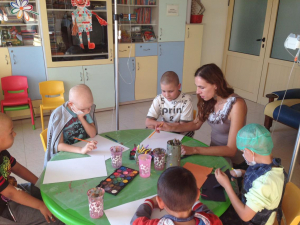
ARTON PROGRAM - The therapeutic power of the group
Creative projects involving group work - general musical performance or group painting, collage, sculpture - are useful in helping to explore and strengthen social...
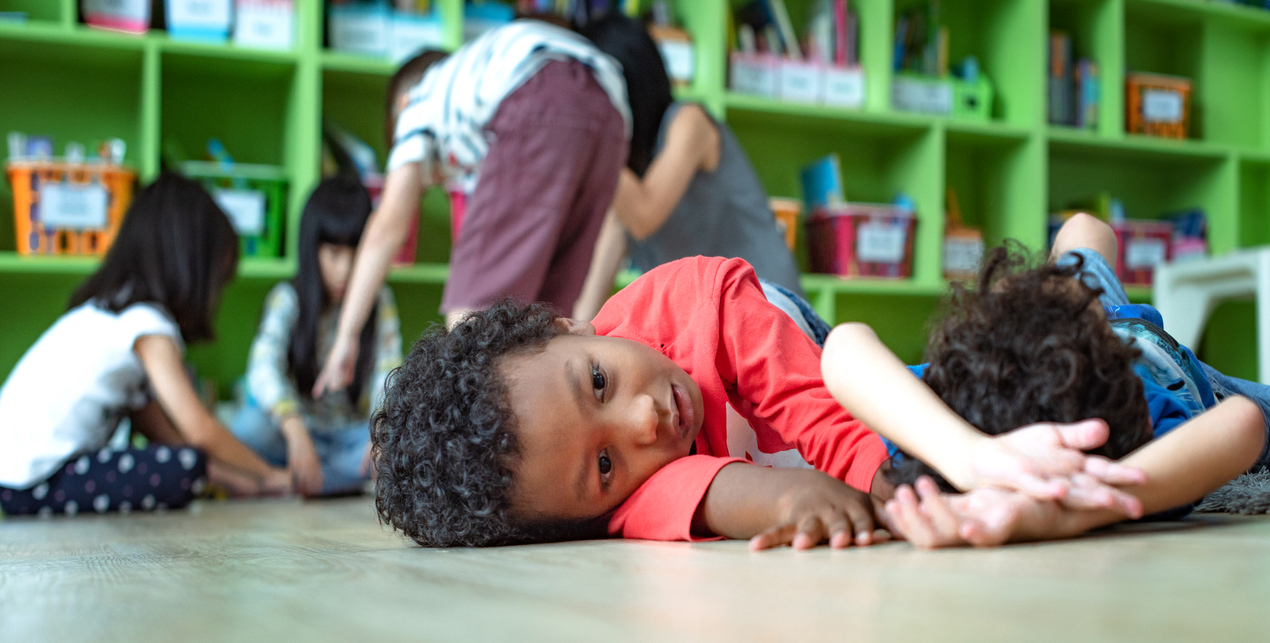
Behavioral disorders, also known as disruptive behavioral disorders, are the most common reasons that parents are told to take their kids for mental health assessments and treatment. Behavioral disorders are also common in adults. If left untreated in childhood, these disorders can negatively affect a person’s ability to hold a job and maintain relationships.
According to BehaviorDisorder.org, behavioral disorders may be broken down into a few types, which include:
According to Centers for Disease Control and Prevention, ADHD is a condition that impairs an individual’s ability to properly focus and to control impulsive behaviors, or it may make the person overactive.
ADHD is more common in boys than it is in girls. According to the Wexner Medical Center at Ohio State University, males are two to three times more likely than females to get ADHD.
An emotional behavioral disorder affects a person’s ability to be happy, control their emotions and pay attention in school. According to Gallaudet University, symptoms of an emotional behavioral disorder include:
ODD is a behavioral disorder characterized by hostile, irritable and uncooperative attitudes in children, according to Children’s Mental Health Ontario. Children with ODD may be spiteful or annoying on purpose, and they generally direct their negative actions at authority figures.
Anxiety is a normal emotion, and all people feel anxiety at some point in their lives. However, for some people, anxiety may get to a point where it interferes with their daily lives, causing insomnia and negatively affecting performance at work or school, according to the Mayo Clinic. Anxiety disorders involve more than regular anxiety. They are serious mental health conditions that require treatment. Examples of these types of mental conditions include:
OCD is characterized by fears and irrational thoughts that lead to obsessions, which, in turn, cause compulsions, according to the Mayo Clinic. If you have OCD, you engage in compulsive, repetitive behavior despite realizing the negative consequences of — or even the unreasonable nature of — your actions. Performing these repetitive acts does nothing more than relieve stress temporarily.
If you or a loved one is experiencing any of these behavioral disorders, it is important to get help as soon as possible, because these conditions can affect quality of life to such a degree that they may lead to self-harm. Please call for assistance.
A behavioral disorder can have a variety of causes. According to the University of North Carolina at Chapel Hill, the abnormal behavior that is usually associated with these disorders can be traced back to biological, family and school-related factors.
Some biological causes may include:
Other factors related to an individual’s home life may contribute to behaviors associated with a behavioral disorder:
Someone who has a behavioral disorder may act out or display emotional upset in different ways, which will also vary from person to person.
According to Boston Children’s Hospital, some of the emotional symptoms of behavioral disorders include:
Unlike other types of health issues, a behavioral disorder will have mostly emotional symptoms, with physical symptoms such as a fever, rash, or headache being absent. However, sometimes people suffering from a behavioral disorder will develop a substance abuse problem, which could show physical symptoms such as burnt fingertips, shaking or bloodshot eyes.
If left untreated, a behavioral disorder may have negative short-term and long-term effects on an individual’s personal and professional life. People may get into trouble for acting out, such as face suspension or expulsion for fighting, bullying or arguing with authority figures. Adults may eventually lose their jobs. Marriages can fall apart due to prolonged strained relationships, while children may have to switch schools and then eventually run out of options.
According to HealthyChildren.org, the most serious actions a person with a behavioral disorder may engage in include starting fights, abusing animals and threatening to use a weapon on others.
The earlier a behavioral disorder is diagnosed and properly treated, the more likely it is that a child or adult suffering from it will be able to control their behavior. Contact us at for assistance in finding treatment options.
Mental health professionals and treatment centers can evaluate people to determine if they a behavioral disorder. Tests called functional behavioral assessments offer problem-solving help to address behavioral problems in students. According to Center for Effective Collaboration and Practice, these assessments are based on many techniques and strategies for identifying problem behaviors. Individualized educational program teams use these assessments to choose interventions that address specific behavioral problems. These teams are involved in the education of students, and they may include parents and teachers.
A person may receive prescription medications to help manage a behavioral disorder. Though medication will not cure the disorder, it is effective in assisting with treatment to control and modify behaviors.
Many drugs are available for behavioral problems, and the type of drug that will be prescribed depends on the specific condition being treated. The Positive Environments Network of Trainers of the California Department of Education lists Ritalin and Dexedrine as short-acting medications for the treatment of ADHD. They may help a child focus better, reduce impulsive behavior and reduce motor restlessness.
Ritalin is also included in a group of medications known as long-acting stimulants. Other types of medications in this group include Concerta, Methylin ER, Methylin CD, Focalin, and Metadate ER. These medications may also be effective against ADHD. Concerta may prevent drug abuse, as can Vyanase and Daytrana. Some professionals recommend Wellbutrin as a primary ADHD treatment.
People with an anxiety disorder, OCD or ADHD may benefit from antidepressants, including Paxil, Tofranil, Anafranil, Prozac, Luvox, Celexa, Zoloft and Norpramin. Other medications that may help include Daytrana, Biphetamine, Dexedrine, Adderall XR and Strattera. These medications are aimed at decreasing impulsivity, reducing hyperactivity, decreasing obsessive-compulsive actions and reducing feelings of depression.
Medications for behavioral disorders may have side effects. They can increase emotional issues, increase suicidal thoughts and aggravate seizure conditions. Some of the possible side effects include:
An individual may become addicted to the medication taken to treat a behavioral disorder. As a result, the person may need professional help with weaning off that medication. You may experience withdrawal symptoms if you abuse certain medications.
If you suspect that you, your child or someone else you know has become dependent on prescription medication, contact us at for immediate assistance.
Children are more likely than adults to accidentally overdose on medication, including behavioral medications. A person who is depressed because of a behavioral disorder may attempt an overdose on purpose. People who are depressed or have suicidal thoughts have a high risk for overdose, according to the National Coalition Against Prescription Drug Abuse.
According to the Cleveland Clinic, a behavioral disorder may trigger depression. The opposite is also possible, with depression being a trigger for a behavioral disorder, which can also lead to substance abuse.
It is not uncommon for people with a behavioral disorder to also have an addiction to drugs or alcohol. According to Psychology Today, an individual who has a panic disorder may also be addicted to alcohol.
Children with ADHD may be at a higher risk for developing a substance abuse or alcohol dependence issue if the condition carries over into adulthood, according to WebMD.
Because of the severity of these mental health issues, getting help for a behavioral disorder is crucial. Cognitive behavioral therapy along with medication is an effective way to treat disorders such as ODD. The sooner you get help, the easier it will be to restore your life to normal.

Creative projects involving group work - general musical performance or group painting, collage, sculpture - are useful in helping to explore and strengthen social...
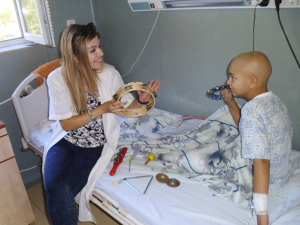
In the ARTON Program our team of oncopsychologists, art therapists and music therapists develops the process of children's creativity as a process of...
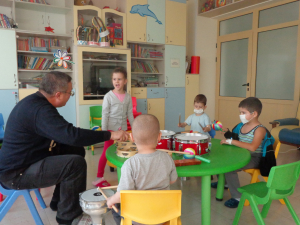
In ARTON sessions, creating a piece of music or a song is an emotional experience of coping and satisfaction for the participating children. They make friends with...
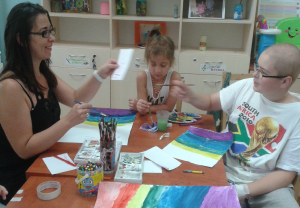
Painting provides patients with a spontaneous, plastic method of depicting thoughts and experiences. Painting with paints is not as structured as with pencil or...










